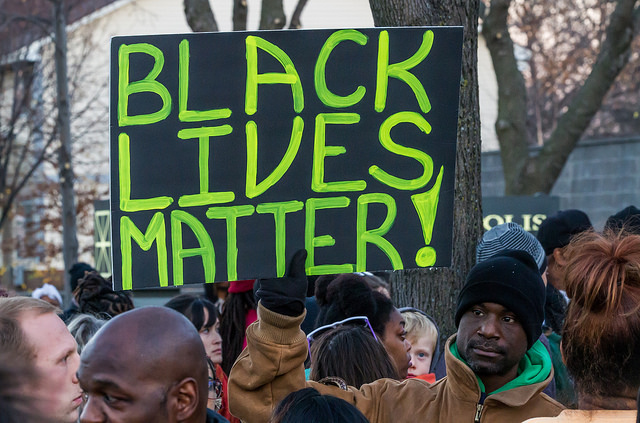I guess we should be glad that no member of the Trump family or transition team actually attended the white supremacist event in Washington last weekend where Trump’s victory was celebrated with Nazi salutes.
For those looking for good news in the face of Donald Trump’s presidential victory, these are the sort of slim pickings on offer.
The post-election reality — in which such a gathering was openly held in the Ronald Reagan Building a few blocks from the White House — suggests America’s darkest tendencies have been given the equivalent of a hot massage.
And, sure, let’s remain optimistic, but it’s important we not lose our sense of horror and outrage, or allow our moral goalposts to be moved — especially with some Canadian Conservatives checking out how well some of Trump’s stuff could be adapted for use up here.
Nor should we get lulled into feeling grateful for any tidbit of normalcy from Trump. Just because he says he’s rethought plans to bring back torture or to jail Hillary Clinton, he’s still appointed as his top adviser Steve Bannon, overseer of the website Breitbart, which specializes in provocatively stirring up tensions, particularly racial ones. If Trump didn’t want to stir up racial tensions, would he pick that guy?
I’ve always been amazed at the way Americans routinely describe their country as “the greatest democracy on earth,” without considering how that characterization fits with its history of genocide against Native Americans and more than two centuries of slavery.
The fact that slavery was central to the American experience is rarely acknowledged, with little attempt to make amends for this atrocity — as South Africa did after apartheid or Germany did after the Second World War. There’s been only a belated apology, from the U.S. House of Representatives, in 2008, after decades of pressure.
The case for paying reparations to African Americans was brilliantly laid out by activist Ta-nehisi Coates in The Atlantic in 2014, but never given serious consideration in American politics.
This has left a festering wound covered only by a Band-Aid.
Ironically, it was African-American Barack Obama who offered an olive branch across the racial divide, insisting there were no red or blue states, only the United States.
While many were thrilled by the sight of an African American in the Oval Office, it stuck in the craw of others, particularly some angry white men who apparently prefer a world where Black men pick cotton, not cabinet officials.
Of course, not all Trump supporters want to restore the Confederacy. Many are economically suffering workers duped into believing Trump will help them, or high-income urbanites excited about promises of gigantic tax cuts for the rich.
But the soft, itchy underbelly of American racism has been given a good scratching by Trump, who for years kept alive birther attempts to discredit the first Black president.
Whatever damage Trump is likely to do around the globe, at home — under the guidance of master provocateur Bannon — he is almost certainly going to pick a fight with the Black Lives Matter crowd, despite their reliance on peaceful protests in the face of routine police killings of unarmed Black men.
And when those tensions are further inflamed, the man who will be there to ensure justice is done will be Trump’s new attorney general, Jeff Sessions, the Alabama senator whose racial comments led to his rejection as a judge by the Republican-dominated U.S. Senate in 1986.
Less well known is the insidious role Sessions played in preserving Alabama’s long history of separate and unequal education. In the 1990s, 30 of the state’s poorest school districts and a disability rights group successfully challenged the system, with an Alabama judge ruling it unconstitutional.
Sessions, then Alabama’s attorney general, fought to ensure ongoing inequality, using his office to wage a fierce two-year battle to overturn the decision — which was eventually upheld by the state’s Supreme Court.
Given Sessions’ history, it’s not hard to imagine how, as the nation’s attorney general, he’ll clamp down on Black street protesters, stripping away their civil liberties and emboldening police — moves that will lead to more anger, violence, further clampdowns, mass arrests, etc.
Sessions and Bannon will be fighting their old racial battles, only this time the president of the United States will have their back.
Linda McQuaig is a journalist and author. Her book Shooting the Hippo: Death by Deficit and Other Canadian Myths was among the books selected by the Literary Review of Canada as the “25 most influential Canadian books of the past 25 years.” This column originally appeared in the Toronto Star.
Photo: Tony Webster/flickr



